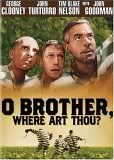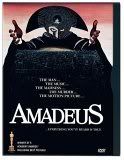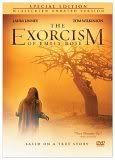
Christians, when they have lived up to the highest ideals of their faith, have defended the weak and vulnerable and worked tirelessly to protect and strengthen vital institutions of civil society, beginning with the family.
We are Orthodox, Catholic, and evangelical Christians who have united at this hour to reaffirm fundamental truths about justice and the common good, and to call upon our fellow citizens, believers and non-believers alike, to join us in defending them. These truths are:
- the sanctity of human life
- the dignity of marriage as the conjugal union of husband and wife
- the rights of conscience and religious liberty.
Inasmuch as these truths are foundational to human dignity and the well-being of society, they are inviolable and non-negotiable. Because they are increasingly under assault from powerful forces in our culture, we are compelled today to speak out forcefully in their defense, and to commit ourselves to honoring them fully no matter what pressures are brought upon us and our institutions to abandon or compromise them. We make this commitment not as partisans of any political group but as followers of Jesus Christ, the crucified and risen Lord, who is the Way, the Truth, and the Life.
h/t Julie D. at Happy Catholic
Labels: Christian culture, Christianity, miscellaneous
Share
HT to Robert M. Lindsey from Retro Hound for pointing me to the post.
“Christian film” is far better now than it was just a few years ago. Then again, that is a little like saying that dry heaving is better than puking. Yes, you’re doing better, but you’re still left queasy and the end material results are still unpleasant. After thirty years of claiming to be on the verge of breaking into the mainstream, “Christian film” is still synonymous with substandard production values, heavy-handed dialog and childish plots. This is not to say there’s a lack of good movies to be seen. The issue is that we don’t need good movies.
We need great movies.
To be blunt, if a film purports to be a “Christian film” it supposedly is done for the glory of God. You don’t glorify God by making lousy movies.
We need great movies.
Like I said, things are getting better. Production values are indeed increasing and there are some serious shops out there trying their best. Within the past ten years we’ve gone from embarrassing messes like Left Behind, The Omega Code, and Joshua to more impressive works like The Nativity Story, Luther, Beyond the Gates of Splendor, Saints and Soldiers, and Facing the Giants. There’s also that little ditty Mel made called Passion of the Christ. As the industry has come to see the financial and cultural muscle of Christians they have worked to market products our way. Those directly in our ranks have likewise stepped up and tried to cater to our tastes. This has lead to more investors, more money and better looking product. Of course you can have the nicest lighting in the world but if you’re still filming a pedantic script with summer-stock reject actors your “better looking product” is simply lipstick on a pig. The product still stinks.
As I said, the genre is improving but must do better. I believe the first step in improving “Christian film” is to stop having “Christian films” and simply have Christians making films. I believe labeling our works, or allowing others to label our works, is our first mistake. When we label our works as being “Christian”, the intention is usually to announce that the piece is “made for Christians” and presumptively is made to glorify Christ. These are commendable ideals and should be the goals of any committed Christian when making art. We run into a few problems when we use the “Christian film” label however:
1. The label is just that, a label. It allows Christian artists to be pigeonholed by people in the industry. Those in the industry can subscribe any negative ideas they’d like to a label “it’s one of those “Christian films.” The label can also relegate the product to a particular distribution stream, which isn’t always a great match.
2. The audience can pigeonhole as well. Christian audiences have come to expect very particular things. The rules don’t tend to stress Biblical truth, moral clarity and sound technical achievement but rather a watered down view of the world. Violence is almost non-existent, salty language never happens, unmarried couples never struggle with lust, evil isn’t really all that evil (because showing various forms of sin isn’t allowed) and in the end everyone is converted quite nicely with no residual issues. Life is reduced to an after school special with praying thrown in for good measure.
For me, this is where the aforementioned dry-heaving usually comes in.
The “Christian” label sets the filmmaker up with a number of hindering rules that are meant to satisfy the most sensitive members of the audience that hijacks the proper development of a story.
3. When a non-Christian is presented with a “Christian film” their reaction is going to be far more defensive than a regular movie. No one wants to go to the movies to be proselytized and most people won't give the time of day to a film that promises to preach.
4. Which branch of Christendom gets the corner on the label “Christian film"? Catholics make movies, as do the Evangelicals and Mormons. Who gets to claim their films are “Christian”? I’m certain most Catholics would be made uncomfortable at a film like Luther while most Evangelicals would bristle at many of the films stemming from the Mormons.
5. When we remove ourselves by stamping our cinema with the Christian label we are leaving the wider culture to be run by whoever comes around. We retreat into our safe little subculture and then act surprised when the Pagan turn Hollywood into Nineveh. We handed over the steering wheel to the heathens and relegated ourselves to whining in the backseat as they drive the culture straight to hell. Our place is at the FRONT of culture not running along the side of it hoping we’ll get noticed.
As you can see, the label brings up a number of serious issues – issues that are not necessary. Christians should drop the pretenses and get to work. We have retreated into this subculture to protect ourselves from the wider one. By relegating our work to be “Christian” and defining that word with the most simplistic, nearly childish worldviews, we extract ourselves from the wider population. We need to be in the mix.
Christian film’s has a long history of being relegated to the basements of churches. The films were made by Christians for Christians to be seen by Christians in the comfort of their churches. We have spent all of our efforts preaching to the choir and then exclaiming that our work was done. If Christians are to make movies they should be with the intent of distributing the teachings of God to everyone not just those in the light. We are to speak the Good News to the world and we can’t do that if we’re too busy entertaining ourselves. Redefining the brand of “Christian film” is the first step in the process of opening up to the outside world.
I am not calling for a lowering of our moral standards. I am not saying we should be ashamed of being Christian. Quite the contrary, we should be open about our faith. I do believe it is important for the filmmaker to be identified as Christian than his work be labeled as such. If a Christian makes a film and if that Christian speaks to Biblical truth and morality – he is making a Christian film. The labeling is there for show and its not really helping anyone. A pagan can make a movie and label it as Christian. The product itself shouldn’t be where the labeling resides. The artist is the one who is the Christian. His fruit will bear His name.
I have no interest in seeing any “Christian film.” What I want to see films made by Christians. There is a difference in my mind. The former is made to satisfy the demands of Christian culture. The latter answers to Christ.
Labels: Christian culture, Christian film, commentary, film, miscellaneous
Share
Some of this may be familiar if you've read my post from last week - I'm reposting this bit because the point is worth making IMHO.
 When I am speaking with a Christian who recoils at the idea of watching movies, I will hear the usual complaints. They will condemn Hollywood for all of its transgressions. It is a place loaded with money grubbing whores who will sell our souls at a discount. Christians will often cite their reasons for not watching movies to be that they don’t want to sin, they don’t want to be tempted, they don’t want to become too comfortable with leisurely activities. One thing I rarely hear about is the world at large. More often than not, Christians tend to speak of cinema as individuals and not as a part of this world. We do not live in bubbles, although many Christians seem to want to have it that way. We live in this world. It is part of our job, while were are here, to help clean things up around here. Film can and will help in getting this work completed.
When I am speaking with a Christian who recoils at the idea of watching movies, I will hear the usual complaints. They will condemn Hollywood for all of its transgressions. It is a place loaded with money grubbing whores who will sell our souls at a discount. Christians will often cite their reasons for not watching movies to be that they don’t want to sin, they don’t want to be tempted, they don’t want to become too comfortable with leisurely activities. One thing I rarely hear about is the world at large. More often than not, Christians tend to speak of cinema as individuals and not as a part of this world. We do not live in bubbles, although many Christians seem to want to have it that way. We live in this world. It is part of our job, while were are here, to help clean things up around here. Film can and will help in getting this work completed.One aspect of hiding oneself from the box office, or neutering ones’ entertainment choices to items that never get more intellectual than children’s shows is that you are out of step with the rest of the world that surrounds you.
By the way, the verse you’re probably thinking of right now is Colossians 3:2 “Set your minds on things that are above, not on things that are on earth.”
Yeah, I know we’re supposed to keep our eyes on the prize and not the Oscars. Keep with me for a while more. If a Christian fails to remain connected to the culture in some fashion – I’ll say that again because it is important, in some fashion – they will not be able to speak the language of those around them. This is an entertainment based culture. For better or for worse (okay, just for worse) we engage each other by means of our entertainment. Today, people discuss television shows and movies the way other generations would speak of the weather. Many people can hold complete conversations using little more than movie quotes and references. Trust me, its possible, my brother-in-law is the king of doing this. If Christians turn away from the culture they lose the ability to fully understand what is going on around them. If we don’t know what is going on, if we don’t speak the language, how can we possibly expect to have effective missions?
In Acts 17:16-23, Paul preaches in Athens. What does he do? Athens is a cultural capital lost in a swamp of theological musings. At the time numerous idols are erected and worshipped. The place, while beautiful and vibrant is spiritual dead. Paul doesn’t meander in, see the pagans and then throw run away crying. What does he do? He enters Athens, investigates and comes to understand their arguments and thinking and the proceeds to change their hearts by speaking their cultural language.
Acts 17:16-23
16 While Paul was waiting for them in Athens, he was greatly distressed to see that the city was full of idols. 17 So he reasoned in the synagogue with the Jews and the Godfearing Greeks, as well as in the marketplace day by day with those who happened to be there.
18 A group of Epicurean and Stoic philosophers began to dispute with him. Some of them asked, “What is this babbler trying to say?” Others remarked, “He seems to be advocating foreign gods.” They said this because Paul was preaching the good news about Jesus and the resurrection. 19 Then they took him and brought him to a meeting of the Areopagus, where they said to him, “May we know what this new teaching is that you are presenting?
20 You are bringing some strange ideas to our ears, and we want to know what they mean.” 21 (All the Athenians and the foreigners who lived there spent their time doing nothing but talking about and listening to the latest ideas.)
22 Paul then stood up in the meeting of the Areopagus and said: “Men of Athens! I see that in every way you are very religious. 23 For as I walked around and looked carefully at your objects of worship, I even found an altar with this inscription: TO AN UNKNOWN GOD. Now what you worship as something unknown I am going to proclaim to you.
In this passage we see that Paul, being of strong faith, is able to engage in a non-Christian culture on its own terms. He works to understand and then moves to turn it towards Christ. What would have been the result if Paul would have simply took his blocks and went home like many Christians demand we do today?
I need to be explicit now. I am NOT saying Christians need to immerse themselves in crass culture. No, you do not have to see the Saw films, you do not need to sit down and watch a box set of Sex in the City. My point is that we need to carefully try to understand the wider culture. It is not sinful to consume material, which does not cause harm, to remain relevant in this culture. If your faith is strong, you can see opposing worldviews and not be swayed. Learn to read culture and you can actually see opposing worldviews and see ways to change them. Keep hiding and you abandon your post. If we continue down the path of avoidance at all costs we have abandoned the non-believers to the worst possible fates when it was within our power to help. I can’t think of any less Christian than that.
Labels: Christian culture, Christianity
Share
"I'm always baffled at people who get upset when their kids go off to college and suddenly fall for the worst of the facile left wing undergrad crap. They complain that they sent off perfect Christian children and the University was magically able to turn them into feminist, socialist, America-hating anarchists in one semester flat. It just makes me want to smack my forehead into my desk, repeatedly.
Why? Because the only way kids would fall for this crap is if *it's the first time they're hearing about it*. It would be like sending them to the congo without a malaria vaccine and being amazed when they come home with it. You don't inoculate kids against bad ideas by sheltering them from them. You inoculate them against bad ideas in the same way you inoculate them against a disease: by introducing them to it in a controlled setting. They're going to go into the world and be faced with a lot of kids their own age who are very enthusiastic about these things, and they need armament against it, and that armament requires a full understanding of the other side. "Protecting" them from the culture also means failing to teach them how to read it, how to see the subtle messages that are far more compelling that outright advertising because it *is* so subtle."
a) Thank you Julie for the link. You're the best.
b) Thank you Elizabeth Anne for saying it better.
Labels: Christian culture, Christianity, miscellaneous
Share
We need great movies.
To be blunt, if a film purports to be a “Christian film” it supposedly is done for the glory of God. You don’t glorify God by making lousy movies.
We need great movies.
Like I said, things are getting better. Production values are indeed increasing and there are some serious shops out there trying their best. Within the past ten years we’ve gone from embarrassing messes like Left Behind, The Omega Code, and Joshua to more impressive works like The Nativity Story, Luther, Beyond the Gates of Splendor, Saints and Soldiers, and Facing the Giants. Lest we forget, there’s also that little ditty Mel made called Passion of the Christ. As the industry has come to see the financial and cultural muscle of Christians they have worked to market products our way. Those directly in our ranks have likewise stepped up and tried to cater to our tastes. This has lead to more investors, more money and better looking product. Of course you can have the nicest lighting in the world but if you’re still filming a pedantic script with summer-stock reject actors your “better look product” is simply lipstick on a pig. The product still stinks.
As I said, the genre is improving but must do better. I believe the first step in improving “Christian film” is to stop having “Christian films” and simply have Christians making films. I believe labeling our works, or allowing others to label our works, is our first mistake. When we label our works as being “Christian”, the intention is usually to announce that the piece is “made for Christians” and presumptively is made to glorify Christ. These are fine – no commendable ideals and should be the goals of any committed Christian when making art. We run into a few problems when we use the “Christian film” label however:
1. The label is just that, a label. It allows Christian artists to be pigeonholed by both people in the industry. Those in the industry can subscribe any negative ideas they’d like to a label “it’s one of those “Christian” films.” The label can also relegate the product to a particular distribution stream, which isn’t always a great match.
2. The audience can do the pigeonholing as well. Christian audiences have come to expect very particular things. The rules don’t’ tend to stress Biblical truth, moral clarity and sound technical achievement but rather a watered down view of the world. Violence is almost non-existent, salty language never happens, unmarried couples never struggle with lust, evil isn’t really all that evil (because showing various forms of sin isn’t allowed) and in the end everyone is converted quite nicely with no residual issues. Life is reduced to an after school special with praying thrown in for good measure.
For me, this is where the aforementioned dry-heaving usually comes in.
The “Christian” label sets the filmmaker up with a number of hindering rules that are meant to satisfy the most sensitive members of the audience and more times than not hijacks the proper development of a story.
3. When a non-Christian is presented with a “Christian film” their reaction is going to be far more defensive than a regular ol’ movie. No one wants to go to the movies to be preached at. As it turns out, looking at the box office receipts, they don't go.
4. Which branch of Christendom gets the corner on the label “Christian film”? Catholics make movies, as do the Evangelicals and Mormons. Who gets to claim their films are “Christian”? I’m certain most Catholics would be made uncomfortable at a film like Luther while most Evangelicals would bristle at many of the films stemming from the LDS.
5. When we remove ourselves by stamping our cinema with the Christian label we are leaving the wider culture to be run by whoever comes around. We retreat into our safe little subculture and then act surprised when the Pagan turn Hollywood into Nineveh. We handed over the steering wheel to the heathens and relegated ourselves to whining in the backseat as they drive the culture straight to hell. Our place is at the FRONT of culture not running along the side of it hoping we’ll get noticed.
As you can see, the label brings up a number of serious issues – issues that are not necessary. Christians should drop the label, drop the pretenses and get to work. We have retreated into this subculture to protect ourselves from the wider one. By relegating our work to be “Christian” we extract ourselves from the wider population. We need to be in the mix.
Christian film’s has a long history of being relegated to the basements of churches. The films were made by Christians for Christians to be seen by Christians in the comfort of their churches. We have spent all of our efforts preaching to the choir and then exclaiming that our work was done. If Christians are to make movies they should be with the intent of distributing the teachings of God to everyone not just those in the light. We are to speak the Good News to the world and we can’t do that if we’re too busy entertaining ourselves. Removing the unneeded label of “Christian film” from our works is the first step in the process of opening up to the outside world.
I am not calling for a lowering of our moral standards. I am not saying we should be ashamed of being Christian. Quite the contrary, we should be open about our faith. It is important for the filmmaker to be identified as Christian than his work be labeled as such. If a Christian makes a film, and if that Christian speaks to Biblical truth and morality – he is making a Christian film. The labeling is there for show and its not helping anyone. A pagan can make a movie and label it as Christian. The product itself shouldn’t be where the labeling resides. The artist is the one who is the Christian. His fruit will bear His name.
I have no interest anymore in seeing “Christian film” What I want to see are films made by Christians. There is a difference in my mind. The former is made to satisfy the demands of Christian culture. The latter answers to Christ.
Labels: Christian culture, Christian film, commentary, film
Share
***Thanks to Burton of BURTONIA for this interesting look at this obscure documentary.***
Should I see it?
Yes, especially for Christians.
Short Review: Elmer Gantry is a Hippy.
During the Battle of the Bulge in World War II, English-speaking German saboteurs infiltrated American lines wearing American uniforms. The effort failed miserably as quick-thinking American soldiers improvised short tests involving questions about baseball and other bits of Americana. In a similar way, Hollywood evinces some fascination with American popular religion, but is quite unable to get the details right. From Night of the Hunter to Leap of Faith, moviemakers have attempted to mine the rich intersection of greed and revivalist religion. To someone like me, who grew up in this milieu, they come across as ridiculous as a German soldier trying to act like an American G.I.
Hollywood's fictions make Marjoe that much more astonishing. In the early '70's, a former child evangelist, Marjoe Gortner, decides to quit the revival preaching circuit in a spectacular way. He hooks up with a documentary film crew and takes them along as he preaches in tents and churches in California, Texas, and Michigan. The power of the film comes in the harsh contrast between his passionate performances in front of the faithful and his cynicism, greed, and unbelief when the meetings are over.
The movie begins with a short explication of Marjoe's history. His parents invented his persona from birth, starting with his name, a conflation of Mary and Joseph. They made him into a preaching automaton, from the age of four. At no point does he ever seem to have believed any of it. By the time he was a teenager, he was bitter and alienated, and broke with his parents. He wound up a flower child, and only returned to preaching to solve his money "hang-ups".
What makes a thirty-five year old documentary fresh today is how good Gortner was at what he did. He had obviously been a keen observer of the words, mannerisms, and body language of the southern Pentecostal preachers. Even his hand-on-hip strut, which he freely admits copying from Mick Jagger, is completely natural. He perfectly employs every verbal tic in the repertoire. And his talent is chameleon-like. When he appears in front of black Pentecostals, Marjoe effortlessly slips into the sing-song delivery beloved of African American preachers. He fools them all, from the least to the greatest. In one devastating clip, we see him having lunch with another pastor, and Marjoe is tut-tutting over all the con-men preachers taking advantage of the gullible.
This is a pre-Ken Burns, pre-Michael Moore documentary; it lacks structure and an agenda – and the film is better for it. The only narration is from Marjoe himself. We observe, without distracting commentary, his antics in church, juxtaposed against him counting the take on a hotel room bed, and mocking the simple church-goers in front of his groovy, shaggy friends. If the film has a weakness it is that the filmmakers are clearly distracted by the Pentecostalists' bizarre behavior. There are long shots of people "slain in the spirit", writing on the floor, shaking uncontrollably, and speaking in tongues. These become tedious. Curiously, none of the people in the pews are interviewed. In the end, we want to see and hear more from Marjoe himself.
Marjoe muses throughout that all this Jesus stuff is not so bad, and is compatible with his new-found Aquarian make-love-not-war-give-peace-a-chance philosophy. It's just that all the threats of sin and hell he has to use to pump up the offerings are such a drag, man. If only Marjoe had been born just ten years later, he could have joined a new generation of Christian syncretists who successfully combined pop-psych sloganeering, new age success secrets, and a theologically gutted Christianity. Gortner could have been richer than he dreamed possible.
Related Reviews:
Documentaries
Street Fight (2005)
Manda Balla (Send a Bullet) (2007)
Other Critic's Reviews:
Spirituality & Practice
Film Junk
Labels: Christian culture, documentary, film, Marjoe Gortner, movie review
Share
John Seel has a fantastic article on Christians and cultural change. His views on the subject are not only carefully crafted but also simply dead-on. Click here to read his post over at the Trinity Forum
HT: Phil Cooke at The Change Revolution.
Labels: Christian culture, links
Share
Luckily, I had a devastating heart attack last September. How could this possibly be lucky? Well, for starters I survived - which is good for my family - bad for my neighbor who is going to have to continue to languish living next to a guy who steadfastly refuses to perform basic lawn care. This was also good because like most people who've done the mambo with the Grim Reaper, I have been forced to look at my life. Unfortunately for me, this was a little like shoving a dog's nose into the dank plop its left on the carpet.
I did an inventory of my life and I found that while I was doing great in many areas, some portions of my life were lacking...alright, they were downright pathetic. Like most people who have skipped through the tulips of the Valley of Death I also have been made more acutely aware of theological concerns. I'm not a deathbed convert since I'm proud to say I've been saved for a few years now. That said, it dawned on me that what was missing from my posts was God. My original concept for Nehring the Edge was to blend my Christian worldview with my knowledge of cinema. I drifted away from that. I decided that a redo was in order. Thus, this site.
I had begun this site prior to my heart attack as a personal sounding board as I worked on my book about how Christians can become more active in media tentatively titled What to Do After You've Done Nothing. Now, this is my permanent home. While some of my Christian brothers and sisters may find my tone and approach to be a tad sarcastic and those of you who are educated will be deeply annoyed by my liberal attitude toward grammar, I hope you will find something of use here.
What can you expect? I will review films, lots of films. I review what I see, when I see it. I will also provide you with links to movie trailers and will provide commentary on items I find interesting. I will also continue to host the Carnival of Cinema and will begin posting it in the coming weeks. If you have requests or questions you'd like for me to field send me an e-mail. I'd be happy to respond. For those filmmakers out there, send me your movies and I will have a look. Most importantly, I will come to my reviews with a Christian sensibility and hopefully honor God with my efforts.
Please note, I don't buy into the line of thinking that it is somehow more "Christian" to be nice all of the time. I mock and insult those who lead us astray or simply waste our precious time with bad movies. To answer the tagline question to this blog, "Is it is a sin for a moron to call an imbecile an idiot?" the answer is no - provided the imbecile in question is indeed acting like an idiot. The way I see things, God gave us senses of humor and it seems to be a terrible waste to not use them - as long as we mock the works of men and not God.
If all of this sounds good to you, then you've found a site to bookmark. If not, well, I hope you have a long fruitful life you humorless, uptight creature.
To give you an idea of some of my basic thoughts on Christianity and film, I have a number of posts from my original launch of this site here:
G-Rated Christian: Part II
The First Step is to Watch Where You're Going
Learning Remote Control Control
I hope you'll enjoy my work. Let the bad grammar commence.
Labels: Christian culture, Christianity, links
Share
As a Christian I loath attacks on the faith (at least unfounded ones). Usually these attacks, such as The Da Vinci Code tend to be tedious affairs but they still get a number of Christians all whipped up. As a general rule Christians react to potential attacks on the faith with a loud whining sound. Even when the perceived attack is actually not intended to be harmful (see the reactions to Evan Almighty) Christians can still become a gaggle huffy sourpusses.
There is a great article on The Golden Compass over at FamilyLife (click the link to read). They speak with Looking Closer Journal's Jeffrey Overstreet about the books and the film and they provide a reasonable approach for Christians.
Labels: anti-Christian, Christian culture, commentary, film, The Golden Compass
Share
In the article, Fox Faith: Is It Working? Winter admits the error of going with the Fox Faith brand:
Another producer, Ralph Winter, who helmed Fox Faith flicks like Thr3e, The Visitation, and Hangman's Curse, said he will take some of his future projects to Lionsgate for distribution—starting with House, which will release sometime in 2008.I come down hard on Fox Faith and the genre of "Christian" film precisely because of the obvious consequences of relegating works to these pigeonholes. Moving away from tagging ourselves with exclusive labels can only improve our box office and distribution in the future.
Winter clarified that he has nothing against Fox Faith; indeed, he was one of its original founders, and he praises the brand to this day. But he says the smaller films he produces—typically spiritual thrillers—aren't a good fit for Fox Faith.
"Our movies are more edgy and are not necessarily served by that label," Winter said, citing films derived from books by Frank Peretti and Ted Dekker. "We are working with stories that have a wider appeal than just Christians. Producing a spiritual thriller that is limited to Christians limits our general market appeal. It gets 'labeled.' Audiences that see a Fox Faith label have trouble seeing our spiritual thrillers as being legitimate—they feel it might be watered down and reject the movie without giving it a chance."
Winter said that's what happened with Thr3e, which earned $1 million at the box office in January. "In hindsight, we believe Thr3e would have done better without that label. To get to the audience that enjoys these kinds of thrillers, the Fox Faith label was an oxymoron. It made our movie seem 'soft.' How could this be a thriller if it is Fox Faith?"
HT to producer Phil Cooke of Cooke Pictures. Cooke's site is fantastic and a great resource. Check it out here.
Labels: Christian culture, Christian film, commentary, links
Share
Eldridge is quoted as saying:
"I told the Fox people this movie was going to resonate with the Christian audience and that's fine with me, because I am a Christian," said Eldridge. "But I was worried that this movie would get tagged as a little “Christian” movie, like that was some kind of Good Housekeeping seal for the Christian marketplace. ...”
The film does have Christian messages and direct references to Christ himself, but doesn’t slather its narrative with the divine. Both Mattingly and Eldridge clearly see this label as a hindrance to getting an otherwise worthy piece out to the general public (and to higher receipts.)
"I think it's obvious that this is what happened and that caused some people to distance themselves from this movie. There was no need for that to happen."
The film, which is quite good, did marginal business on DVD and almost nothing at the box office (a tad over $3 million domestically.) This is probably due to a limited release in theaters and a meek marketing campaign to promote the product. Most people probably haven’t heard of the film and that is why they didn’t see it. It is likely that the distribution ran into some roadblocks when the film went down the same old FoxFaith marketing stream that flows mostly to churches and other heavenly minded groups. Being a FoxFaith product tends to mark a work as a “Christian” film and that limits its ability to be distributed to larger audiences.
Click to view The Ultimate Gift trailer
In reaction to this piece, Dr. Ted Bahr wrote a retort on September 19th titled Mean-Spirited Attacks on Faith-Filled Movies on WorldNetDaily.com. In this reaction, Dr. Bahr is indignant and refuses the notion that the Christian label is an issue. He further sees the article as an attack on the faith. He argues that faith-based films are solid box office winners. Pointing to last year’s Facing the Giants as an example (the film grossed over $10 Million with a budget of only $100,000). He also includes the perennial favorites Passion of the Christ and The Chronicles of Narnia as additional examples.
Where Dr. Bahr errs is in his failure to acknowledge the inherent limitations of a “Christian” label on a product. His argument is solidly one-sided with Christian films seeming like a no-brainer for potential marketers. His view is that the lack of business The Ultimate Gift received was an issue of bad marketing (or bad filmmaking) not a damaging label.
“In every genre, there are winners and losers. Some children's films bomb at the box office. Some romances bomb. Many horror movies bomb. Many movies about African-Americans fail. But, they don't bomb just because of their genre or their faith. They bomb because of their lack of entertainment value and/or their limited marketing. Thus, poor marketing and a lackluster release in a limited number of theaters (which is another skill of the marketing craft) can doom a smaller movie, or even a big one.”
The problem Dr. Bahr’s argument is that the marketing and the labeling of the film as “Christian” are inclusive of one another. A film marked as “Christian” has the inherent issue of appearing to be created with only one group in mind. Horror films don’t purport to speak to any specific group while denying others entry simply by their creation. Anyone can approach a horror film and enjoy it. This is the same for “African-American films” or romances. When a film is labeled “Christian” it is saying that the piece is intended for Christian audiences and contains an overt and probably evangelistic message. This gives a sense of exclusivity – and for good reason. The label essentially wards off atheists or folks of other faiths (or milquetoast Christians for that matter).
The biggest hindrance for a film labeled as “Christian” is every other Christian film ever made. We can cherish Passion of the Christ all we want, but we still have to contend with The Omega Code, Left Behind and The Last Sin Eater. “Christian” films stink. They stink badly – they are a rotten egg inside of Michael Moore’s sweat sock, buried in a shallow hole under a cage filled with monkeys who have contracted dysentery kind of stinky. After years of “Christian” films being low-budget, sanctimonious and poorly executed disasters, people have learned to be leery. The best marketing campaign a “Christian” film can have is to put a message on the movie poster that says “This is the one that doesn’t reek.”
Dr. Bahr cites a number of films from 2006 (The Pursuit of Happyness, Superman Returns and Cars) as being examples that prove that films about faith and values are winners at the box office (we'll ignore that Superman Returns promotes Superman siring a bastard child.) This is a misdirection of sorts. None of these films were released as “Christian” films but rather just films that contained some Biblical themes. If anything, the citing of these films works against the concept of offering Christian labeled films. They managed to successfully deliver Biblical themes without the troubling label. This is the model Christian filmmakers should be following.
As much as I respect Dr. Bahr, I believe his response to Mattingly’s article is littered with errors and misstatements. It is important for us to protest when our brothers and sisters are attacked, but it is just as important for us to acknowledge when they are being criticized properly.
Categories: film, Christian film, Ted Bahr
Labels: Christian culture, Christian film, commentary, links
Share
Christians have money.
Hollywood was shocked to learn that responsible people who focus their lives on obeying God, getting married, settling down, raising kids and generally keeping their collective noses clean, end up having money. Moreover, these societal aberrations are willing to act in tandem with one another. Once this fact came to light, it probably took about five seconds of looking at the scope of “Christian film” before the marketing directors of Hollywood began to wonder “Geez, I bet these Christians would like movies that didn’t have to come with barf bags.”
A friend turned me on to a short article over at Brewing Culture about another article over at The Florida Times-Union. The basic gist is this, movie marketers are trying to lure Christians and Christian leaders to spend money one films and this is cause for concern. In the article James A. Smith, Sr., executive editor of the Florida Baptist Witness states that “My point, basically, is we're becoming co-opted by Hollywood.” I take Mr. Smith’s point …and then I quickly disregard it. Let me explain why.
Hollywood knows Christians are under-served and hungry for good products. A hungry and well monied audience is a marketer’s dream. It shouldn’t be a surprise they have come knocking at our church doors. Church leaders can get free merchandising and tickets to films such as Evan Almighty, Spiderman 3 and other box-office behemoths. They can be offered notes on how to mention these products in their sermons and are offered study guides. Some church leaders are even provided with meet-and-greets with the filmmakers and actors. All of this is intended to get said church leader to either mention the film before their congregation or to at least begin a word-of-mouth movement within the Christian community. The intended end result is to get us to go see movies.
What’s the problem with this again?
Given that Christians tend to be a paranoid and ungrateful lot when it comes to Hollywood, more and more of us are bemoaning that movie marketers are attempting to usurp the pulpit. Many Christians look at the influx of movie marketing as being a cynical attack on our faith.
We need to make up our minds.
Christians have been moaning for the longest time that Hollywood isn’t making movies the way that they want. Now Hollywood has turned their attention our way and is intentionally trying to court us. We need to acknowledge this and work with them. Secular Hollywood may be driving the cultural car but they’re finally asking us for directions. Perhaps we should stop telling them to go to hell.
Here is the deal, it is a blessing that Hollywood is attempting to cater to our needs. It is a blessing they are actively trying to get us to see their works. Hollywood marketing to us is a golden opportunity for us to help them improve their products. Instead of looking at their attempts to woo us as being some disgusting attempt to sully our church, we need to look at this as a chance to let them know exactly what we want. This is their way of saying that they want to work with us. They want to serve us. We need to respond with open hands not closed minds.
In the Jacksonville.com article, James A. Smith, Sr rightly urges “more caution and wisdom” when confronted with marketing. I couldn’t agree with this more. The marketers are looking to make money and aren’t concerned with the effects their works will have on the church. That’s not their job. Their job is to get butts in cinema seats. Being concerned about the effects of influences on your church is the job of your church leader. As the face of the church our leaders must be strong enough not to be tripped up by some shyster with an Evan Almighty official collector’s fanny pack. If you have serious concerns that your church leader will be duped by marketing efforts then you need to find yourself a new church leader. Personally, I have no concerns about marketing influencing the leaders of my church. They’re not cultural hermits and are engaged in the culture. This means they’re aware enough to not be lured easily. They will direct us to films they know will be good for us to see. Just like they do for books, just like they do for other areas of life.
Like Hollywood, churches perform marketing campaigns as well and use the same marketing techniques to get their message across. The marketing itself isn’t evil and we shouldn’t be so cynical when we see it. Yes, Hollywood is looking to get their mitts on your cash. They will certainly step over the line at times in their attempt to get our "Passion dollars". When this happens it simply means they’re desperate to get our attention. I say let’s give them our attention. Let’s welcome them and let them know how to make products that will serve our needs. Both groups can only improve from the relationship.
Labels: Christian culture, commentary
Share
We need great movies.
To be blunt, if a film purports to be a “Christian film” it supposedly is done for the glory of God. You don’t glorify God by making lousy movies.
We need great movies.
Like I said, things are getting better. Production values are indeed increasing and there are some serious shops out there trying their best. Within the past ten years we’ve gone from embarrassing messes like Left Behind, The Omega Code, and Joshua to more impressive works like The Nativity Story, Luther, Beyond the Gates of Splendor, Saints and Soldiers, and Facing the Giants. Lest we forget, there’s also that little ditty Mel made called Passion of the Christ. As the industry has come to see the financial and cultural muscle of Christians they have worked to market products our way. Those directly in our ranks have likewise stepped up and tried to cater to our tastes. This has lead to more investors, more money and better looking product. Of course you can have the nicest lighting in the world but if you’re still filming a pedantic script with summer-stock reject actors your “better look product” is simply lipstick on a pig. The product still stinks.
As I said, the genre is improving but must do better. I believe the first step in improving “Christian film” is to stop having “Christian films” and simply have Christians making films. I believe labeling our works, or allowing others to label our works, is our first mistake. When we label our works as being “Christian”, the intention is usually to announce that the piece is “made for Christians” and presumptively is made to glorify Christ. These are fine – no commendable ideals and should be the goals of any committed Christian when making art. We run into a few problems when we use the “Christian film” label however:
1. The label is just that, a label. It allows Christian artists to be pigeonholed by both people in the industry. Those in the industry can subscribe any negative ideas they’d like to a label “it’s one of those “Christian” films.” The label can also relegate the product to a particular distribution stream, which isn’t always a great match.
2. The audience can do the pigeonholing as well. Christian audiences have come to expect very particular things. The rules don’t’ tend to stress Biblical truth, moral clarity and sound technical achievement but rather a watered down view of the world. Violence is almost non-existent, salty language never happens, unmarried couples never struggle with lust, evil isn’t really all that evil (because showing various forms of sin isn’t allowed) and in the end everyone is converted quite nicely with no residual issues. Life is reduced to an after school special with praying thrown in for good measure.
For me, this is where the aforementioned dry-heaving usually comes in.
The “Christian” label sets the filmmaker up with a number of hindering rules that are meant to satisfy the most sensitive members of the audience and more times than not hijacks the proper development of a story.
3. When a non-Christian is presented with a “Christian film” their reaction is going to be far more defensive than a regular ol’ movie. No one wants to go to the movies to be preached at. As it turns out, looking at the box office receipts, they don't go.
4. Which branch of Christendom gets the corner on the label “Christian film”? Catholics make movies, as do the Evangelicals and Mormons. Who gets to claim their films are “Christian”? I’m certain most Catholics would be made uncomfortable at a film like Luther while most Evangelicals would bristle at many of the films stemming from the LDS.
5. When we remove ourselves by stamping our cinema with the Christian label we are leaving the wider culture to be run by whoever comes around. We retreat into our safe little subculture and then act surprised when the Pagan turn Hollywood into Nineveh. We handed over the steering wheel to the heathens and relegated ourselves to whining in the backseat as they drive the culture straight to hell. Our place is at the FRONT of culture not running along the side of it hoping we’ll get noticed.
As you can see, the label brings up a number of serious issues – issues that are not necessary. Christians should drop the label, drop the pretences and get to work. We have retreated into this subculture to protect ourselves from the wider one. By relegating our work to be “Christian” we extract ourselves from the wider population. We need to be in the mix.
Christian film’s has a long history of being relegated to the basements of churches. The films were made by Christians for Christians to be seen by Christians in the comfort of their churches. We have spent all of our efforts preaching to the choir and then exclaiming that our work was done. If Christians are to make movies they should be with the intent of distributing the teachings of God to everyone not just those in the light. We are to speak the Good News to the world and we can’t do that if we’re too busy entertaining ourselves. Removing the unneeded label of “Christian film” from our works is the first step in the process of opening up to the outside world.
I am not calling for a lowering of our moral standards. I am not saying we should be ashamed of being Christian. Quite the contrary, we should be open about our faith. It is important for the filmmaker to be identified as Christian than his work be labeled as such. If a Christian makes a film, and if that Christian speaks to Biblical truth and morality – he is making a Christian film. The labeling is there for show and its not helping anyone. A pagan can make a movie and label it as Christian. The product itself shouldn’t be where the labeling resides. The artist is the one who is the Christian. His fruit will bear His name.
I have no interest anymore in seeing “Christian film” What I want to see are films made by Christians. There is a difference in my mind. The former is made to satisfy the demands of Christian culture. The latter answers to Christ.
Labels: Christian culture, Christian film, commentary, film
Share
JulieD of THE HAPPY CATHOLIC had posted a list of “movies hat matter” (follow this LINK). This lists films she believes to have positive messages. This was a result of her review of the book Movies That Matter: Reading Film Through the Lens of Faith
The most important thing a Christian can do when viewing a film is to understand what the film is saying to them. The problem is that we want to like movies we watch. Then again, as Christians we also want to remain committed to our faith. This duality often leads us to excuse the culture we digest. We either are completely dismissive of film (it’s just a movie) or we pick and choose the messages we claim a film projects. This is a common snare for Christians and I certainly find myself caught in this trap. It takes a great deal of patience and thought to avoid the pitfalls of cinema’s allure.
The idea that someone blows off cinema as being meaningless speaks for itself. It’s wrong, but it is obvious what I mean. Every film, from Citizen Kane to Dodgeball expresses a worldview and has a message it is putting forth. There is no such thing as a film that is “just entertainment”. This is a fiction people repeat out of either honest ignorance or as means to excuse their enjoyment in a particular piece. It is fair to consider films to be a little like commercial for worldviews. Like actual commercials a film presents an problem and the resolves said issue with the behavior they wish to support. An example of this that I like to use is from Pirates of the Caribbean. The problem is Will Turner wants to woo Elizabeth Swann but he is restricted by social rules. The answer is abandon society and become a pirate. In an actual commercial they present a problem (you’re hungry) and then they present an answer (eat of McDonalds.) Every film has this set up and resolution.
The more complicated issue is the picking and choosing of themes or philosophies. This is when Christians, in their attempt to find something nice to say about a piece will ignore huge parts of a film and clutch on to one positive aspect to make the whole piece seem wonderful. Forrest Gump is good because it tells the tale of a man fighting against his handicap and winning. Yeah, but the film is a post-modern screed which denies any order to the universe (therefore no God.) Christians love The Matrix because of the Christian references. They want the film to be a Christian analogy so bad they ignore such things such as the wanton murder of the “unsaved” and the fact that the evil computer created the original “Eden” matrix (this translates to the evil computer being God.) The examples are legion. We will say that a film that shoves existentialism, paganism or various other “isms” that are contrary to the Christian worldview are acceptable because they promote a narrow theme. I can say Bladerunner examines the nature of humanity and has really cool gunfire sound effects. Yes, but the piece as a whole denies actual existence. The main character turns out to be a robot so we are left wondering if anyone actually is human. This denial of existence is at the heart of the post-modern worldview. We must take the piece as a whole, not pick and choose like it is a buffet of ideas. You consume the whole thing, not just its parts. There are plenty of porn flicks out there that give great messages about “teamwork” and “doing unto others”. We need to be mindful of the whole piece not just its parts.
The above may sound like I’m a freak about content. In a way I am. In my eyes, a film is one of moral value if it promotes two essential things. 1) It supports and examines a Christian value. 2) It supports and promotes the Christian worldview. Everything else is philosophical weak sauce and should be digested with caution. A good example of a positive worldview is found in the works of Quentin Tarantino who lavishes his work with the teachings of our Lord. Just checking to make sure you're still paying attention. Tarantino is actually a moral retard and is one of the great turd merchants standing at the brim of this septic tank we call popular culture.
I am not one who believes that the presence of sex and/or violence immediately means a piece is unacceptable. Adult topics deserve adult honesty. If the story calls for nudity I say fine. If the story calls for violence, okay. I concern myself more with WHAT is being said. HOW it is being said takes a backseat (although it is not totally out of the equation.) I have been asked to offer my own list of “movies that matter”. Using my criteria I have isolated some films I believe are “good” for Christians.
I’ve decided the split my choices of “movies that matter” into three categories: Safe, Moderate and Are You Out of Your Head?
The Safe List are films that are commonly held “Christian-safe” films. The second group is the Moderate List. These are films that have some questionable content for many Christians such as war violence or sexual suggestions. These are more “mainstream” films that are not meant to speak directly to Christians but to a wider audience. The final group, or the “Are You Out of Your Head? List” are films that are not for kids and some adults. These films have harsh violence and/or sexual content. I believe they have more however. Sure they are rough but they have value. I say if we're going to set boundaries we need to know where they stand. As my pastor likes to say, “The site is called Nehring The Edge after all. If you need me to explain the final choices, let me know and we’ll have at it.
The Moderate List
These films that I believe support our way of thinking while they still entertain. They are in no particular order. If you haven’t seen these films, I recommend each one. If you haven’t thought of these film being worthy for Christians, I suggest giving them a second look.
This is the Coen Brother’s best piece and the only George Clooney performance worth noting. Strong Christian roots feed this humorous piece about a trio of escaped cons who find that no matter where you go God’s divine hand will find you.
Frank Capra and James Stewart provide a brilliant and uplifting look at the power of the individual. Stewart answers the call of his beliefs and stands for truth. This is an outstanding piece that shows that even a single voice can change the world.
The best war film of all time, hands down – no arguing. This film puts the discussion of a “just war” in real terms. While very gory, it violent for a reason. A great tool for debate and a masterful piece of filmmaking. Look for Tom Hanks in a Christ-like role as Capt. Miller.

One of the best westerns to ever see the screen, this film has stunning cinematography, effective performances and a great story. Christian symbolism abounds in this story of a stranger who arrives at a farm and is forced by circumstance to set things right.
To have purpose in your life, effect other people’s lives for the better. Hugh Grant changes gears and gives a likable performance as Will, a literally useless person, who changes when he is adopted by a boy looking for a mentor.
Probably the best example of the effects of worldview ever put to screen. American P.O.W.s are tortured by their Japanese captors during World War II. The only weapon available to the Americans is their faith. The Japanese rely on their “honor”. Be warned, this is a brutal film and very hard to watch. The torture scenes are very realistic.
In my opinion this is the greatest piece of animation in decades and the best film of 2004. This movie affirms the family, good over evil, and the wages of clinging to the past. It also makes the unflinching statement against the results oriented crowd. All of this and it is entertaining to boot.
Like About a Boy, this film supports the idea that one improves themselves by helping others. John Candy offers one of his best and most endearing performances as the kindly Uncle who has put off responsibility as long as possible. Very funny and pushes great values.
A great story of envy. F. Murray Abraham portrays Salieri, a gifted composer who is thankful to God for his talents until he finds that God has given the foul Mozart more. Unable to accept his lot in life, Salieri conjures an evil plot against God’s chosen one. Outstanding performances are buttressed by Peter Schaffer’s sharp direction.
Life is fleeting, use your time wisely. An intelligent script that is full of wisdom is good values inform this humorous piece. Robin Williams gives what is probably his best performance as teacher John Keating who teaches his students to live their lives with as much life as possible.
M. Night Shamalamadingdong’s creepy alien invasion story is an entertaining suspense film. Mel Gibson gives a strangely subdued performance as Rev. Hess, a man who has lost his faith after the death of his wife. A somewhat weak resolution attempts to spoil this otherwise well-conceived plot which speaks to faith and redemption.
One of the scariest films in years. It’s scary because it takes the notion of possession and faith seriously. This piece is more of a courtroom drama than a horror film. Well written and expertly performed, this movie will scare you and get you thinking about the nature of evil.
The best horror film of all time. Starkly realistic, William Friedkin’s film about the possession of a little girl still frightens today. A rare exception, faith is given a serious portrayal in this piece and is used to heighten the realism of the film as a whole. This is not for those who scare easy.
Fueled by well-written script by Shawn Hoffman and Michael Patwin, this is one of the better overtly Christian films made in recent years. While far from masterful, this is a good movie with good morals and strong Christian messages. If you’re committed to only watching “Christian” film, this is one you need to see.
These are not for the faint of heart and involve some very harsh sexuality and/or violence to get their point across.
Yeah, it’s hyper violent and has gay bikers running around with their butts hanging out. Don’t rent this one for the church social. I sincerely believe this film is a good look at worldview and sacrifice when viewed properly. Look at the differences between Mad Max (Mel Gibson) and Pappagallo (Michael Preston) and how they work in the world. If you’re still confused, click on the link below the title to be taken to my full review.
Can you think of a better film that shows the results of a person obsessing on their works in this world? Evil gets a foothold on Jack (Jack Nicholson) when his obsession to create overcomes him while managing an empty hotel with his wife and psychic son. A great look at how evil can take root when we lose our way.
Christians will turn from this one instinctually. If you’re capable of handling the violence, this smart film is worth another look. The morality at work in this piece is well thought out and worthy of discussion. Extremely well written and directed, this disturbing piece is far more than it first appears.
The real face of the pornography business is shown in the brutally realistic film. Nicholas Cage is private investigator Tom Welles who gets caught up in the terrible world of porn when he is tasked to investigate if a snuff film is authentic or not. This film will stick with you and probably not in a good way. I recommend it because it shows evil for what it is without dressing it up (until the unfortunate ending.) This one comes with a strong caution for content.
Not for everyone, this sometimes too blunt film shows the underbelly of sexuality. William Hurt and Kathleen Turner star in this steamy film noir piece about a man who will do anything to feed his lust. One of the better films of the 80’s, this movie speaks to the moral consequences of immoral behavior. Be warned, the sexuality portrayed in this film is very graphic.
Probably the best view on the effects of pornography on the individual. Greg Kinnear portrays Bob Crane, best known as Hogan from Hogan’s Heroes. Crane who is at the top of his career takes a nosedive when pornography and his sexual desire takes over his life.
Those last few ought to kick up the comment count.
Agree with my picks or not, it is crucial for Christians to be mindful of the entertainment they devour. Although I suggest some films with sexuality and violence you must protect yourself. Obviously, if viewing rough content easily sways you then you shouldn’t. Do not take my endorsement of some films with sex and/or violence to mean that I don’t have any criterion at play here. The worldview of a film is a critical thing for us to be wary of but it is always important for us to be cautious when we open ourselves to sex and violence. Watching questionable material does have its effect and we shouldn’t be dismissive of it.
Drop me a line if you disagree with my choices or my way of thinking. Better yet, let me know if I have missed anything.
Labels: Christian culture, commentary, links, list, movie reviews
Share




Good News Film Reviews LLC 2004-2010 - used with permission
Images, video and titles are the property of their respective copyright holders. Good News Film Reviews LLC claims no ownership or connection to them.
The views expressed on this site are not the opinion of any advertiser or external entity.
While we take care to only link to responsible entities, Good News Film Reviews LLC takes no responsibility for the content linked from this site. There are sharks in the waters. Surf at your own risk.
The Template is generated via PsycHo and is Licensed.









































